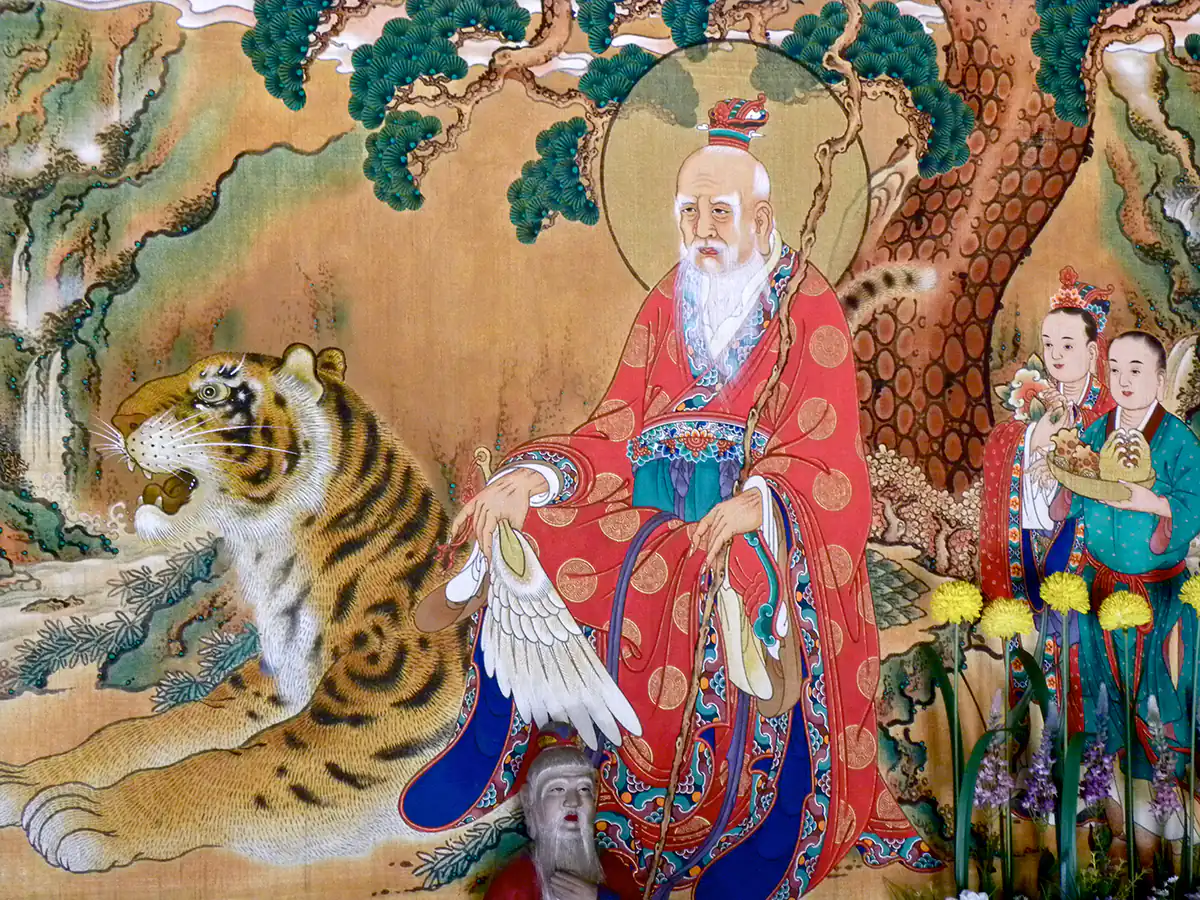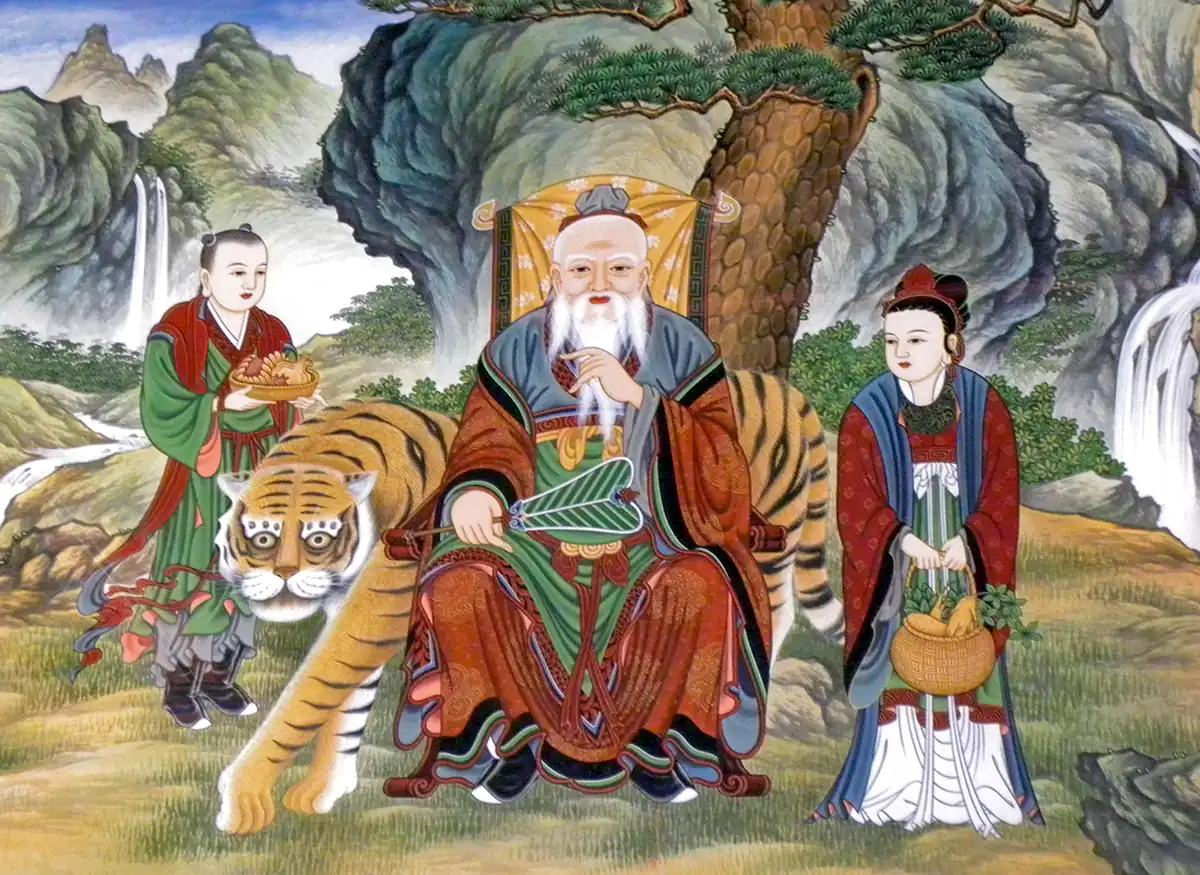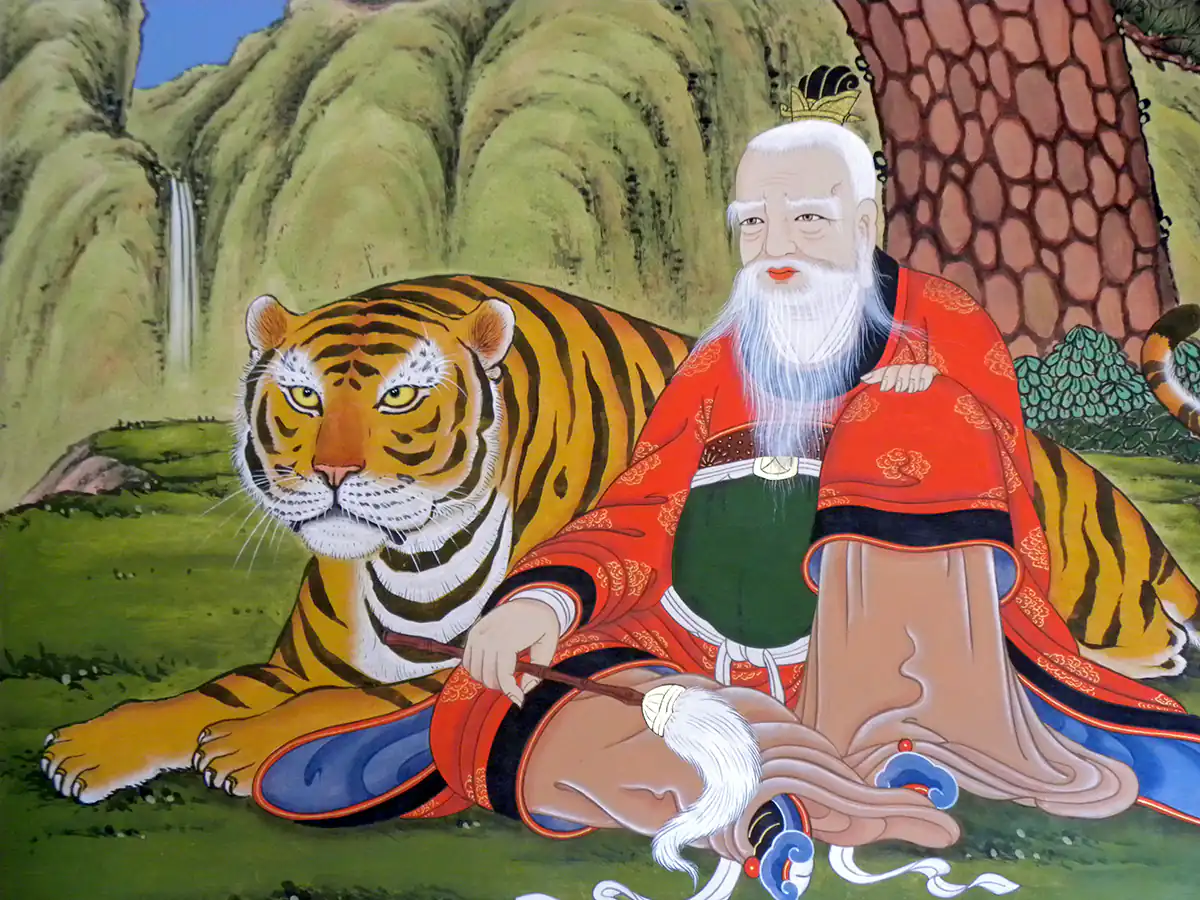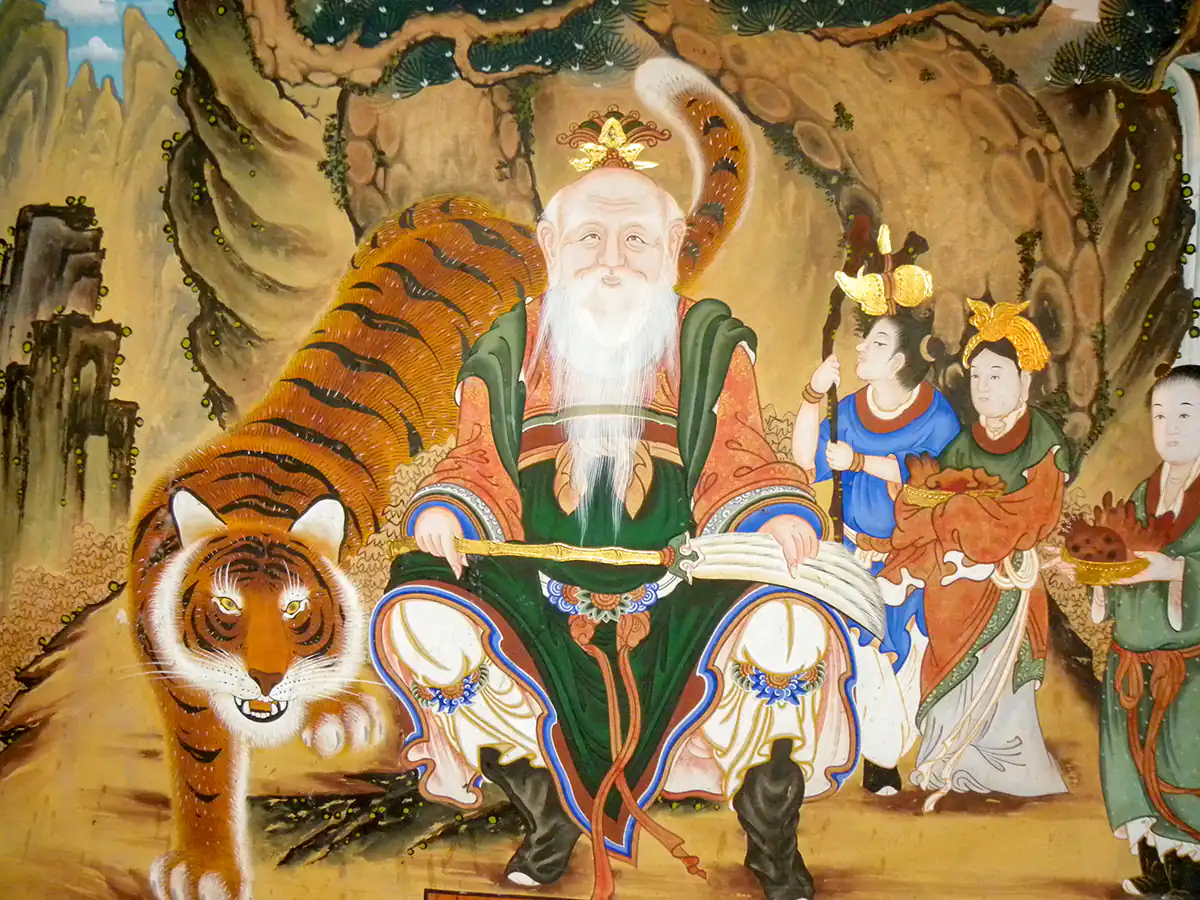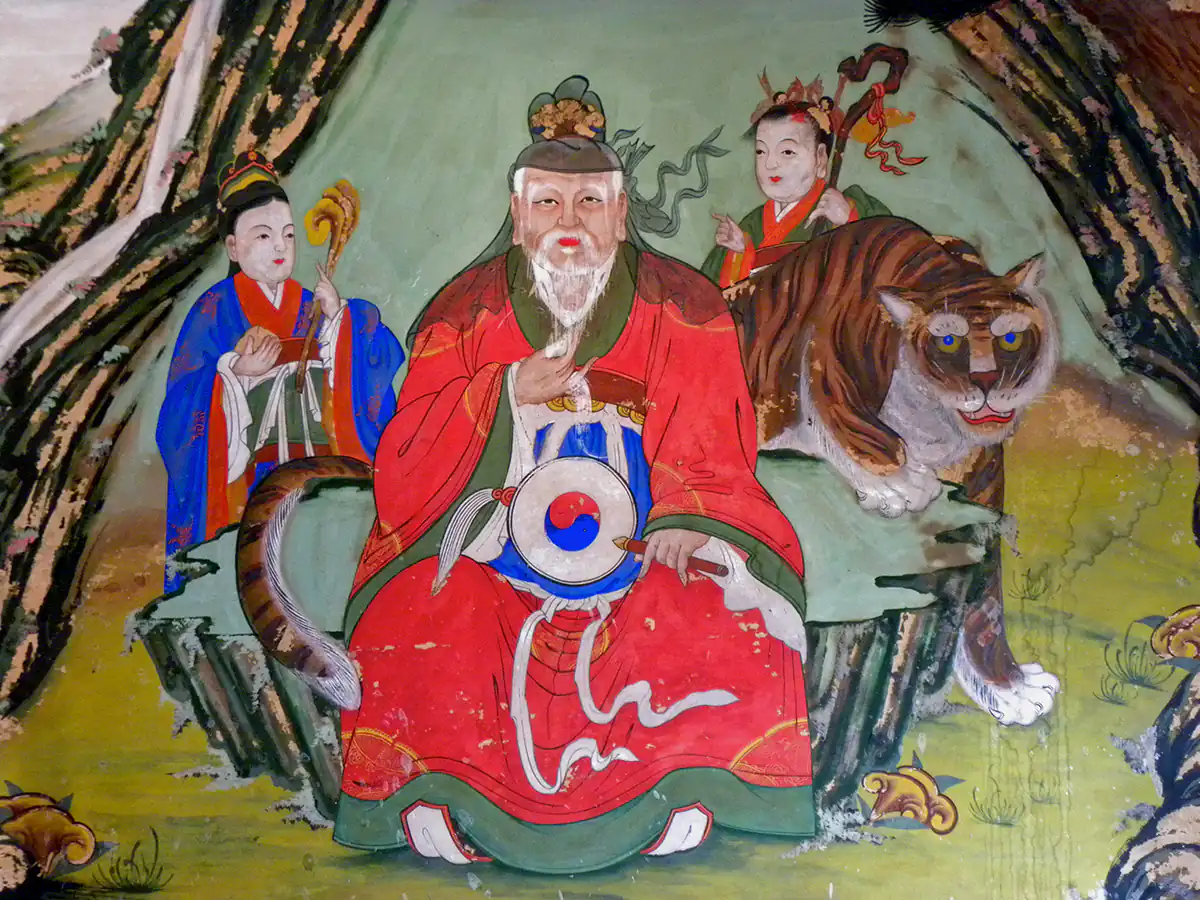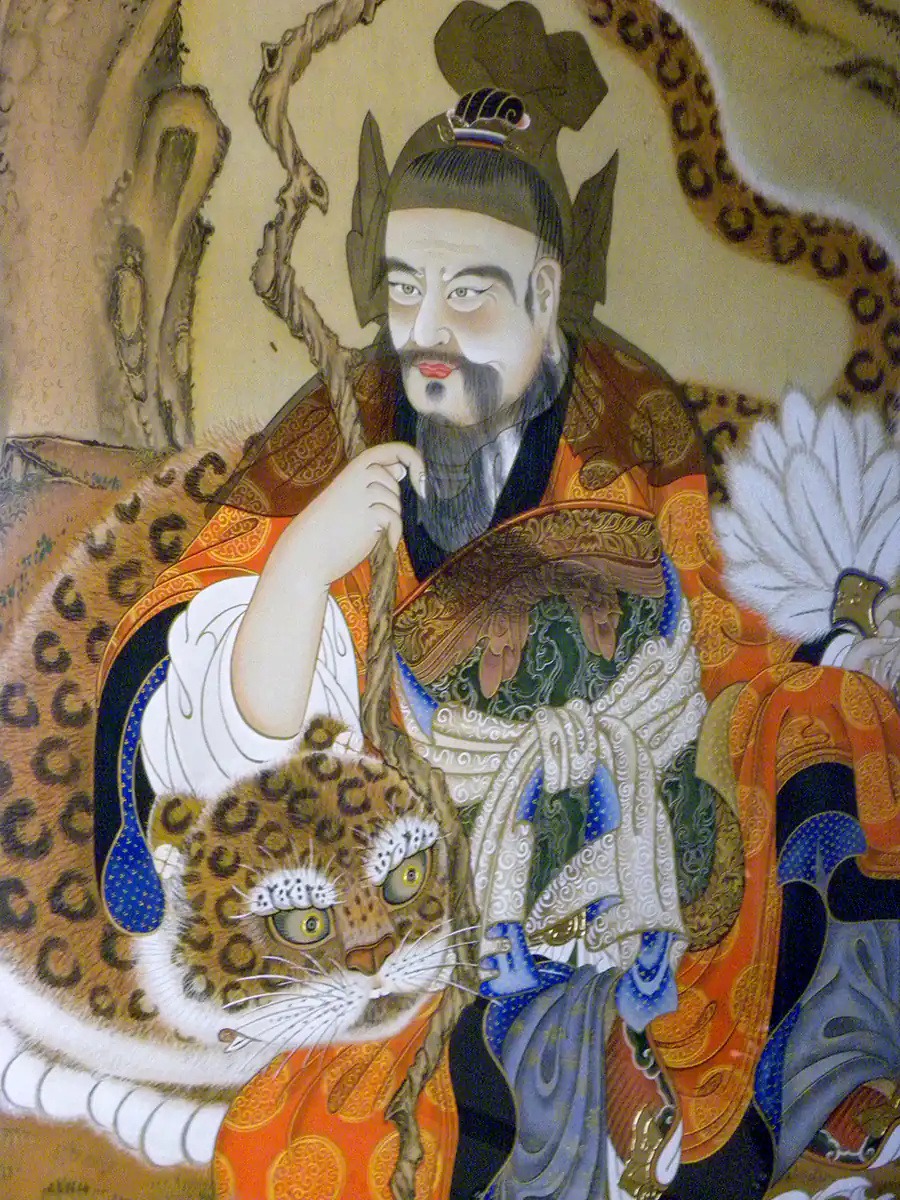Sanshin: The Mountain Spirit
Koreans still very strongly maintain traditions as old as their culture itself, that mountains are especially holy places for the communication of energies between heaven and earth. The sacred aspects of these mountains and their relationships with the human communities around them are embodied in the ideas and icons of Sanshin (Mountain Spirit). These are patriarchal or matriarchal deities, usually depicted in royal clothing, sitting in high alpine splendor, and holding symbols of health, longevity, and harmony with nature. A tiger, a symbol of the powers of the wilderness, always accompanies them. Paintings of them include Buddhist, Shamanic, Confucian, Daoist, and nationalist motifs, making them uniquely multi-religious icons, and out of some 10,000 that have been painted on the peninsula for the past three centuries, no two are alike. No work of art better symbolizes and summarizes Korean culture and Koreans' intimate relationship with their natural environment.
For additional information by Professor David Mason, visit san-shin.org.

Martin Gray is a cultural anthropologist, writer and photographer specializing in the study of pilgrimage traditions and sacred sites around the world. During a 40 year period he has visited more than 2000 pilgrimage places in 160 countries. The World Pilgrimage Guide at sacredsites.com is the most comprehensive source of information on this subject.
